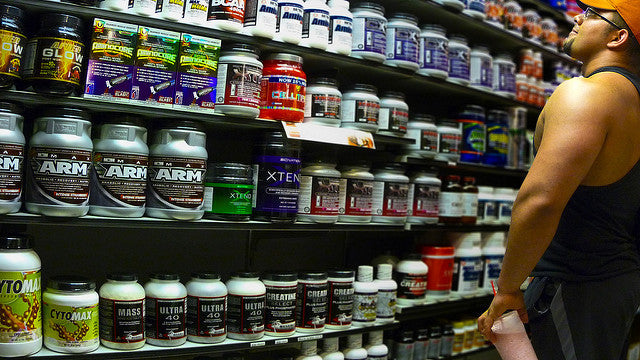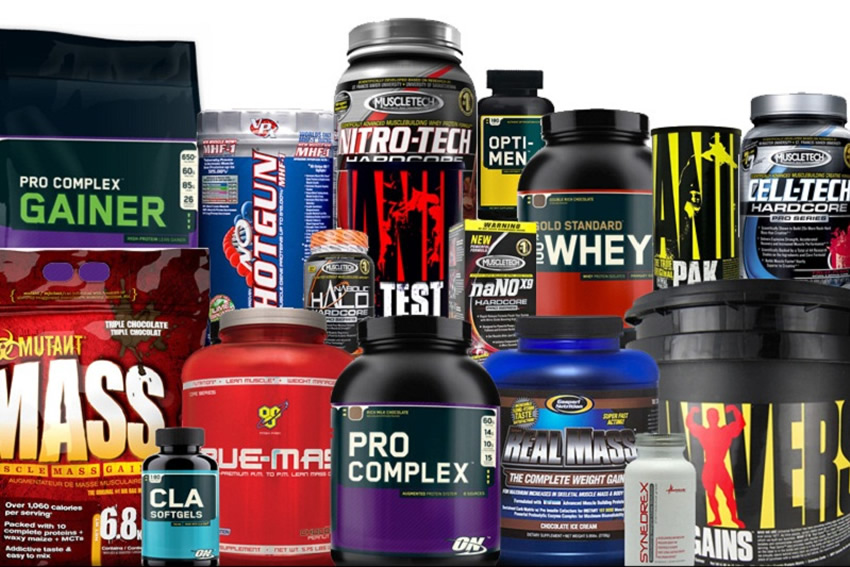
Powerlifting Supplements: An Evidence-Based Guide
Once your training, nutrition, and recovery are dialed in, supplements can provide that extra edge to boost performance, enhance recovery, and support your strength goals. However, the supplement industry is flooded with products, many of which are backed by more marketing hype than scientific evidence. This guide cuts through the noise to focus on the most effective, evidence-based supplements for powerlifters.

The Foundation: Food First
Before even considering supplements, remember that they are meant to supplement a solid diet, not replace it. Your foundation must be a well-structured powerlifting nutrition plan that meets your calorie and macronutrient needs. No supplement can make up for a poor diet.
Tier 1: Proven Performers
These supplements are backed by extensive scientific research and have consistently been shown to be effective and safe for strength athletes.
1. Creatine Monohydrate
-
What It Is: Creatine is a naturally occurring compound that helps your muscles produce energy during high-intensity exercise. Creatine monohydrate is the most researched and effective form.
-
Why It Works: It increases your stores of phosphocreatine, which is the primary fuel source for short, explosive efforts like lifting heavy weights. This allows you to perform more reps and lift heavier, leading to greater long-term gains in strength and muscle mass.
-
Evidence: It is one of the most effective ergogenic aids available for increasing high-intensity exercise capacity and lean body mass.
-
Dosage: A daily dose of 3-5 grams is sufficient. A "loading phase" of 20 grams per day for 5-7 days can saturate your muscles faster, but it isn't necessary.
2. Caffeine
-
What It Is: A central nervous system stimulant.
-
Why It Works: Caffeine can increase alertness, improve focus, and reduce the perception of effort, allowing you to train harder. It's a powerful and proven performance enhancer.
-
Evidence: Studies consistently show that caffeine ingestion can enhance muscular strength and power output.
-
Dosage: The effective dose is typically 3-6 mg per kilogram of body weight, taken about 30-60 minutes before training. Be mindful of your tolerance and avoid taking it too close to bedtime.
3. Whey Protein
-
What It Is: A high-quality, fast-digesting protein derived from milk.
-
Why It Works: It provides a convenient way to meet your daily protein targets, which are crucial for muscle repair and growth after intense training sessions.
-
Evidence: Protein supplementation is well-established as an effective strategy for promoting muscle adaptation when combined with resistance training.
-
Dosage: 20-40 grams post-workout is common, but it can be used anytime throughout the day to supplement total protein intake.

Tier 2: Potentially Beneficial
These supplements have promising evidence but may not be as universally effective or as essential as Tier 1.
1. Beta-Alanine
-
What It Is: An amino acid that combines with histidine to form carnosine in your muscles.
-
Why It Works: Carnosine acts as a buffer against the buildup of hydrogen ions during intense exercise, which can delay the onset of muscular fatigue. It's most effective for efforts lasting 1-4 minutes. While most powerlifting sets are shorter, it may help with higher-rep accessory work.
-
Evidence: Research supports its use for improving performance in high-intensity exercise, though its direct benefit for 1RM strength is less clear.
-
Dosage: 3.2-6.4 grams per day, often split into smaller doses to avoid the harmless tingling sensation known as paresthesia.
2. Citrulline Malate
-
What It Is: An amino acid that plays a role in the urea cycle and nitric oxide production.
-
Why It Works: It may enhance blood flow to the muscles, improve performance, and reduce muscle soreness.
-
Evidence: Some studies suggest it can increase reps to failure and alleviate post-exercise muscle soreness.
-
Dosage: A common effective dose is 6-8 grams taken before training.
When building your supplement stack, start with the proven winners: creatine monohydrate for strength, caffeine for performance, and whey protein for recovery. Once those are consistently in place, you can consider adding Tier 2 supplements like Beta-Alanine or Citrulline Malate if they align with your specific training style and goals. Always prioritize quality from reputable brands and remember that supplements are just one small part of the powerlifting puzzle.
What supplements are a staple in your powerlifting routine? Share your experiences in the comments!








